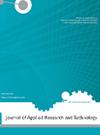事件驱动架构和REST架构风格:模块化的探索性研究
Q3 Engineering
Journal of Applied Research and Technology
Pub Date : 2023-06-27
DOI:10.22201/icat.24486736e.2023.21.3.1764
引用次数: 1
摘要
事件驱动的体系结构在软件行业中被广泛采用,作为基于REST体系结构风格的企业应用程序开发的替代方案而出现。然而,在企业应用程序发展的过程中,事件驱动的体系结构对模块化的影响知之甚少。因此,从业者最终采用了它,而没有任何关于它对基本指标的影响的经验证据,包括关注点分离、耦合、内聚、复杂性和大小。因此,本文报告了一项探索性研究,比较了事件驱动架构和REST风格在模块化方面的差异。通过五个演进场景,使用事件驱动架构和REST开发了一个实际的应用程序。在每个场景中,都添加了一个特性。生成的版本使用十个指标进行比较。最初的结果表明,事件驱动的体系结构改善了关注点的分离,但考虑到耦合、内聚、复杂性和大小的指标,它的表现要好得多。这些发现是令人鼓舞的,并且可以被看作是更雄心勃勃的议程的第一步,以经验评估事件驱动架构与REST架构风格的优势。本文章由计算机程序翻译,如有差异,请以英文原文为准。
Event-driven Architecture and REST Architectural Style: An Exploratory Study on Modularity
Event-driven architecture has been widely adopted in the software industry, emerging as an alternative to the development of enterprise applications based on REST architectural style. However, little is known about the effects of event-driven architecture on modularity while enterprise applications evolve. Consequently, practitioners end up adopting it without any empirical evidence about its impacts on essential indicators, including separation of concerns, coupling, cohesion, complexity, and size. This article, therefore, reports an exploratory study comparing event-driven architecture and REST style in terms of modularity. A realistic application was developed using an event-driven architecture and REST through ve evolution scenarios. In each scenario, a feature was added. The generated versions were compared using ten metrics. The initial results suggest that the event-driven architecture improved the separation of concerns, but was outperformed considering the metrics of coupling, cohesion, complexity and size. The findings are encouraging and can be seen as a first step in a more ambitious agenda to empirically evaluate the bene ts of event-driven architecture against the REST architectural style.
求助全文
通过发布文献求助,成功后即可免费获取论文全文。
去求助
来源期刊

Journal of Applied Research and Technology
工程技术-工程:电子与电气
CiteScore
1.50
自引率
0.00%
发文量
0
审稿时长
6-12 weeks
期刊介绍:
The Journal of Applied Research and Technology (JART) is a bimonthly open access journal that publishes papers on innovative applications, development of new technologies and efficient solutions in engineering, computing and scientific research. JART publishes manuscripts describing original research, with significant results based on experimental, theoretical and numerical work.
The journal does not charge for submission, processing, publication of manuscripts or for color reproduction of photographs.
JART classifies research into the following main fields:
-Material Science:
Biomaterials, carbon, ceramics, composite, metals, polymers, thin films, functional materials and semiconductors.
-Computer Science:
Computer graphics and visualization, programming, human-computer interaction, neural networks, image processing and software engineering.
-Industrial Engineering:
Operations research, systems engineering, management science, complex systems and cybernetics applications and information technologies
-Electronic Engineering:
Solid-state physics, radio engineering, telecommunications, control systems, signal processing, power electronics, electronic devices and circuits and automation.
-Instrumentation engineering and science:
Measurement devices (pressure, temperature, flow, voltage, frequency etc.), precision engineering, medical devices, instrumentation for education (devices and software), sensor technology, mechatronics and robotics.
 求助内容:
求助内容: 应助结果提醒方式:
应助结果提醒方式:


